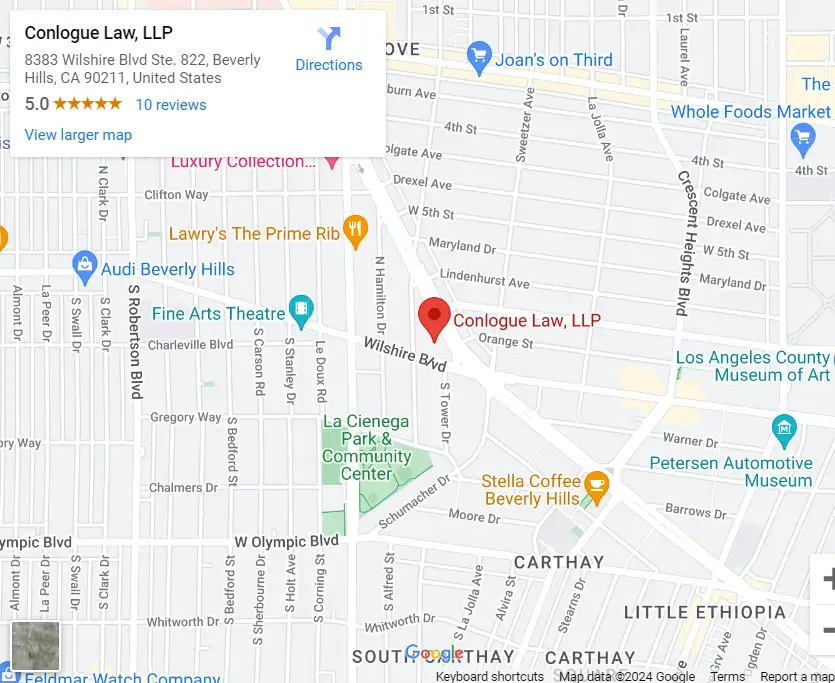Facing a maritime medical malpractice case? We could help turn the tide in your favor.
Maritime medical malpractice cases in Los Angeles are particularly challenging due to the unique legal and jurisdictional complexities involved. If you or a loved one has suffered a catastrophic injury due to medical negligence on a vessel, understanding the intricacies of maritime law is important. A catastrophic injury lawyer in Los Angeles can provide insights into the process of navigating these complex cases.
Key Summary:
- Catastrophic maritime medical malpractice refers to severe medical negligence in the maritime industry that results in significant harm or death. This can involve misdiagnosis, surgical errors, medication mistakes, or failure to treat serious conditions while at sea. Due to the remote and resource-limited environment of maritime settings, the consequences of such negligence are often severe and can impact maritime professionals like seafarers and dockworkers.
- Common examples of catastrophic maritime medical malpractice include misdiagnosis or delayed diagnosis of critical conditions, surgical errors onboard, and medication mistakes. The maritime setting exacerbates these errors due to the limited availability of advanced medical care. Additionally, failure to evacuate a patient promptly or poor infection control practices can lead to life-threatening outcomes, such as sepsis or severe complications.
- Maritime medical malpractice cases in Los Angeles are governed by a combination of maritime law, federal statutes, and state law. General maritime law and the Jones Act cover seamen and maritime workers, while the Death on the High Seas Act (DOHSA) applies to wrongful death cases beyond U.S. waters. Cruise ship passengers face different rules, often influenced by contract law and maritime regulations. California law may also play a role when care is provided onshore.
- To navigate a maritime medical malpractice case successfully, it’s essential to consult a catastrophic injury lawyer with experience in both maritime and medical malpractice laws. The process includes determining the applicable laws, gathering evidence, proving negligence, and selecting the right jurisdiction for filing the claim. Evidence from onboard incidents, medical records, and witness testimony is important for building a strong case.
- To win a maritime medical malpractice case, proving negligence is key. This requires demonstrating that the medical provider failed to meet the standard of care and that this failure directly led to the injury or death. Compensation may include medical expenses, lost wages, pain and suffering, and in wrongful death cases, loss of financial support. Settlement negotiations are common, but cases may go to trial if no agreement is reached.
- Maritime medical malpractice cases have strict time limits, typically three years under general maritime law and the Jones Act, but only one year for cruise ship passenger claims, with a six-month notice requirement. Acting quickly is important, as missing these deadlines can forfeit your right to compensation.
Los Angeles, with its bustling port and maritime industry, sees its fair share of such high-stakes cases, where the consequences of negligence can be severe and life-altering. In this guide, we’ll delve into the essential steps and considerations for effectively handling these cases.
What You Need To Know About Catastrophic Maritime Medical Malpractice?
Catastrophic maritime medical malpractice refers to severe cases of medical negligence occurring within the maritime industry, where the consequences are particularly devastating due to the nature of the injuries or conditions involved. This type of malpractice involves medical errors or substandard care that results in significant harm or even death, often affecting seafarers, dockworkers, and other maritime professionals.
Maritime workers are exposed to unique risks and hazards, such as extreme weather, heavy machinery, and long hours. Medical malpractice in this context can have particularly dire consequences due to the challenging working conditions and remote locations.
What Are Examples of Catastrophic Maritime Medical Malpractice Cases?
Medical negligence in the maritime environment is particularly complex due to the difficulty in providing immediate, high-quality care, as well as the legal intricacies of maritime law. Below are some real-world examples that illustrate the range of medical malpractice incidents that can lead to catastrophic outcomes at sea.
- Misdiagnosis or Delayed Diagnosis: A physician or medical professional on a vessel might misdiagnose or delay diagnosing a serious condition, such as a heart attack, stroke, or severe infection. The lack of timely and accurate diagnosis in a maritime setting can lead to life-threatening consequences due to the limited access to advanced medical care.
- Surgical Errors: When medical care is provided onboard, such as during emergency surgeries, mistakes can happen due to inadequate training, improper equipment, or miscommunication. Surgical errors at sea can result in severe complications or even death, especially if the patient cannot be quickly evacuated to a shore-based medical facility.
- Medication Errors: Incorrect dosages, administering the wrong medication, or failing to provide necessary medications can be particularly harmful in maritime settings. The limited resources and isolation from land-based healthcare facilities make correcting such mistakes difficult and often result in catastrophic outcomes.
- Failure to Treat: Medical professionals on ships may fail to provide the necessary treatment for injuries or illnesses due to insufficient training, oversight, or neglect. This can include ignoring symptoms of severe conditions, such as sepsis or internal bleeding, or not providing proper care for traumatic injuries, which can worsen over time without proper intervention.
- Improper Evacuation or Delayed Medical Transport: In some cases, the failure to evacuate a patient in time due to miscommunication, logistical issues, or poor judgment can lead to catastrophic harm. In maritime settings, timely evacuation is often critical, as the patient may need advanced care that cannot be provided onboard.
- Infections and Sepsis: In a maritime environment, inadequate sterilization or poor infection control practices can lead to severe infections. If these infections are not properly managed, they can result in sepsis, which is life-threatening and requires immediate intensive care that may not be available at sea.
These types of catastrophic malpractice cases are governed by maritime law, which adds a layer of complexity in determining liability and securing compensation for victims. The isolated and often resource-limited environment of ships and offshore platforms makes the consequences of medical negligence particularly severe.
What Are The Legal Frameworks That Govern Maritime Medical Malpractice Cases in Los Angeles?
The legal framework governing medical malpractice cases in maritime environments, particularly in Los Angeles, involves a combination of maritime law, state law, and federal regulations. These cases are often more complex than typical medical malpractice claims because they may involve specific maritime laws designed to address injuries and negligence occurring at sea or on offshore platforms.
Here’s an overview of the legal principles and frameworks relevant to such cases in Los Angeles:
1. General Maritime Law
General maritime law, also known as Admiralty Law, is a body of law governing activities and incidents that occur on navigable waters, including oceans, seas, and large lakes. This body of law applies to all types of maritime-related medical malpractice cases, such as those involving cruise ships, cargo vessels, and offshore oil platforms. Some key aspects include:
- Negligence Standard: Maritime medical malpractice claims are typically based on negligence, meaning the injured party must prove that the medical professional failed to meet the standard of care and that this failure directly caused harm.
- Comparative Negligence: Maritime law often uses the doctrine of comparative negligence, meaning that if the injured party is partially at fault, their compensation may be reduced based on their degree of fault.
2. The Jones Act
The Jones Act (Merchant Marine Act of 1920) provides protections for seamen who are injured as a result of negligence while working aboard a vessel. Although it primarily covers maritime workers, it can apply to medical malpractice cases if a seaman receives inadequate medical care from an onboard medical provider, such as a ship doctor or medic. Under the Jones Act, seamen can sue their employers for damages, including medical malpractice claims, if negligence is proven.
3. The Death on the High Seas Act (DOHSA)
DOHSA is a federal statute that provides the legal framework for wrongful death claims that occur beyond U.S. territorial waters (more than three nautical miles offshore). If a passenger or crew member dies due to medical malpractice in international waters, the surviving family members may be able to seek compensation under DOHSA. The act limits the types of damages that can be recovered to pecuniary losses, such as lost wages or financial support, rather than pain and suffering.
4. Cruise Ship Medical Malpractice
Cruise ship passengers who experience medical malpractice while at sea are often subject to complex legal rules involving both general maritime law and contract law. Many cruise lines include provisions in their ticket contracts that limit their liability for medical malpractice by onboard physicians or nurses. However, recent court rulings have increasingly allowed passengers to bring claims against cruise lines for medical negligence, particularly if the cruise line employed the medical staff or misrepresented the quality of care available on board.
5. Longshore and Harbor Workers’ Compensation Act (LHWCA)
The LHWCA provides compensation to maritime workers, such as longshoremen, harbor workers, and other non-seamen, who are injured while performing their duties on navigable waters or adjoining areas, such as docks or shipyards. In some cases, LHWCA claims can overlap with medical malpractice claims if the worker received inadequate medical care after an injury. However, the LHWCA generally provides a no-fault compensation system, limiting the ability to pursue separate medical malpractice claims in certain circumstances.
6. California State Law
While maritime law often governs medical malpractice cases that occur at sea, California state law can also play a role, particularly when the malpractice occurs close to shore or involves non-maritime elements, such as when a patient is transported to a hospital in Los Angeles for further care. California’s medical malpractice laws, including caps on non-economic damages, may apply once the patient is under the care of land-based medical providers.
7. Forum Selection Clauses
Many maritime employers, cruise lines, and offshore platforms include forum selection clauses in their contracts, which dictate where a lawsuit must be filed. For instance, cruise lines often require passengers to file claims in specific jurisdictions, such as Miami, even if the cruise departed from or was connected to Los Angeles. However, maritime workers injured on the job may be able to file claims in federal court under the Jones Act or general maritime law, depending on the circumstances.
Medical malpractice in the maritime environment is governed by a complex intersection of general maritime law, federal statutes and California state law. The specific legal framework will depend on the nature of the maritime activity, the location of the incident, and the status of the injured party (e.g., passenger, seaman, or worker).
How Can I Navigate My Maritime Medical Malpractice Case?
Navigating your maritime medical malpractice case requires a strategic approach due to the complexity of maritime laws and the unique challenges of medical malpractice at sea. Here’s a step-by-step guide to help you understand the process and improve your chances of success:
1. Consult a Catastrophic Injury Lawyer in Los Angeles
The first step in navigating your case is to seek a maritime attorney experienced both in maritime law and medical malpractice laws. Maritime law is highly specified and differs significantly from standard personal injury law, so having an attorney with experience and resources in this area is significant.
2. Understand the Applicable Laws
Your catastrophic injury attorney will help determine which laws apply to your case, as maritime medical malpractice is governed by a combination of federal maritime law, state law, and specific statutes like the Jones Act.
3. Gather Evidence
Gathering and safeguarding evidence is vital to proving that medical negligence caused your injuries or a loved one’s death. Obtain medical records and incident reports, and gather witness testimonies from those who observed the events leading to the injury.
4. Determine Jurisdiction and Venue
Maritime cases can be filed in either federal or state court, depending on the incident. Many cruise lines and maritime employers have contracts with forum selection clauses, so it’s important to review these with your attorney to file in the correct venue.
5. Prove Negligence
To win your maritime medical malpractice case, you must prove that the medical professional or provider was negligent. This means demonstrating that they failed to meet the standard of care expected in a similar situation, and that this failure caused your injury or the death of a loved one.
6. Seek Compensation
The compensation you can pursue in a maritime medical malpractice case depends on the specifics of your situation, including your status as a passenger, crew member, or worker, and the extent of your injuries or losses. You may be entitled to compensation for medical expenses, lost wages, pain and suffering, and, in wrongful death cases, loss of financial support.
7. Prepare for Settlement or Trial
Many maritime medical malpractice cases are settled before trial, with your lawyer negotiating to secure fair compensation for your injuries or losses. Settling early can save time and stress, but if no agreement is reached, your lawyer will prepare your case for trial.
8. Address Any Challenges
Maritime medical malpractice cases often involve unique challenges, such as delayed access to medical care, international waters, and jurisdictional issues. If the outcome of your case is not favorable, your attorney can advise you on the possibility of appealing the decision.
Is There a Deadline in Filing a Claim?
Yes, there are time limits, known as statutes of limitations, for filing a maritime medical malpractice claim. These deadlines depend on the specific legal framework governing your case and vary based on factors such as the type of claim, the location of the incident, and whether state or federal law applies. Here are some key time limits:
- General Maritime Law: The statute of limitations for filing a personal injury or medical malpractice claim is generally three years from the date of the injury or incident. This three-year period applies to most maritime negligence claims, including medical malpractice cases involving passengers or crew members.
- The Jones Act: The statute of limitations for filing a claim under the Jones Act is also three years from the date of injury. This period applies to claims for injuries caused by medical negligence, such as improper treatment by an onboard doctor.
- Death on the High Seas Act (DOHSA): If the case involves a wrongful death that occurred more than three nautical miles offshore, the statute of limitations for filing a wrongful death claim under DOHSA is three years from the date of death.
- Cruise Ship Passenger Claims: For cruise ship passengers who suffer medical malpractice, the time limit for filing a claim may be shorter. Most cruise lines include provisions in their passenger contracts that limit the time for filing a lawsuit is within one year of the incident. They may also require passengers to provide written notice of the claim within six months.
- Longshore and Harbor Workers’ Compensation Act (LHWCA): The statute of limitations for filing a claim under the LHWCA is generally one year from the date of injury. However, this may vary for medical malpractice cases related to treatment after an injury.
- State Law Claims (California): If the malpractice occurred within California’s jurisdiction, such as after being transferred to a land-based hospital in Los Angeles, California’s three-year limitation may apply.
Acting quickly is important due to specific time limits that apply to filing claims. Missing these deadlines can lead to losing the right to seek compensation.
Call our Catastrophic Injury Lawyer in Los Angeles Now!
Navigating catastrophic maritime medical malpractice cases in Los Angeles requires a thorough understanding of both maritime law and medical malpractice principles, as well as careful attention to jurisdictional and procedural nuances. Whether you are a seaman, cruise passenger, or maritime worker, Conlogue Law LLP is here to assist.
Conlogue Law LLP understands the devastating impact these cases can have on individuals and families. Our commitment is to provide compassionate and aggressive legal representation to ensure you receive the justice and compensation you deserve.
Contact us today for a free consultation and let us help you navigate the complexities of your case. We can also assist in other legal areas such as vehicular injury cases, longshore claims, and civil rights violations.








